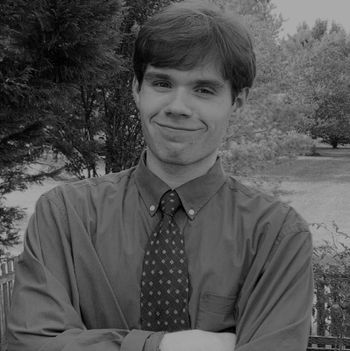Prof says Amazon Rainforest will disappear by 2064. You can probably guess why.
One University of Florida professor predicted that the Amazon Rainforest will become a deserted plain by 2064.
An expert speaking with Campus Reform, however, didn't agree with that assessment.
One University of Florida professor predicted that the Amazon Rainforest will collapse by 2064, and then become a dry plain.
Robert Walker, a professor in the University of Florida’s Center for Latin Studies predicted the Amazon Rainforest will be nothing but a deserted plain by 2064.
Walker pointed to climate change and human deforestation as the catalyst for the demise of the ecosystem. The prediction derives from Walker’s most recent publication, Collision Course: Development Pushes Amazonia Toward Its Tipping Point.
The Amazon Rainforest is 2.3 million square miles - the largest forested domain on Earth, but Walker says that is going to change into “savanna.”
Walker, who is part of the Center for Latin American Studies and Geography, considers himself a land change scientist.
Walker told United Press International that he has spent time in communities situated in the Amazon, engaging in dialogue with loggers and farmers who exercise stewardship over the land. The professor pointed to inadequate use of government resources as the cause of deforestation in the area. He then commented that individuals are more concerned where they are getting their “next meal” than they are for “biodiversity.”
[RELATED: Prof claims ‘white supremacy’ is to blame for climate change]
Walker wrote in his academic article that Brazil’s President Jair Bolsonaro’s removal of environmental “restraints’’ likely means “aggregate forest loss will surpass 25% in the very near future.”
Walker also wrote that the past drought of 2005 will become the region’s “new normal.”
`According to Walker, because of the “continental dependency on Amazonia as a source of water,” the end repercussion of man-made climate change and deforestation would mean that “the magnitude of the catastrophe will be worse than heretofore imagined.”
Sterling Burnett, a senior fellow at the Heartland Institute, disagreed with Walker’s analysis regarding the depletion of the Amazon Rainforest by 2064 when speaking with Campus Reform.
“Well, you know for deforestation, we would have to increase quite a bit for the Amazon to be depleted, it has nothing whatsoever to do with climate change,” Burnett said. “It has to do with people moving into the forest to either farm, including policies promoted by the government, green energy policies, and wanting to do renewable fuels. They do it with sugarcane down there, they clear forests and they grow sugarcane. You’ve also got a lot of wildcat mining down there in the Amazon, it’s destroying huge swaths and poisoning rivers.”
[RELATED: Harvard profs fight climate change by bringing wooly mammoth back from extinction]
Burnett said that the decline of the Amazon Rainforest isn’t just because of climate change. He also noted that Brazil sits near the equator where temperatures aren’t rising as much as the rest of the world.
“Truth is, Brazil sits near the equator and temperatures aren’t rising near the equator. Where most temperatures rise from you know, they talk about the Earth’s average temperature rising, well the average temperature has risen a very small amount, and most temperatures have risen near the poles, but near the equator, they’re not rising,” Burnett continued.
Urbanization of Brazil in Amazonian regions, according to Burnett, has contributed to the temperature rise, not man made climate change.
“To the extent temperatures rise in Brazil, you’ll find them there and in other countries near the equator and other South American countries where they’ve risen, well’s it’s all the urban heat island effect,” Burnett said.
“You know when people talk about climate change, they are talking about increasing carbon dioxide in the atmosphere, warming, and changes in weather extremes, that’s not what is behind this,” he said concerning the temperature in the Amazon.
Burnett elaborated on Brazilian economic development and how it has affected the Amazon Rainforest.
“The question is how you manage development in the country, but compared to the industrial west, it still has a lot of poverty,” Burnett said. “You want to raise people out of poverty, and the question is how do you do it? I’m not convinced it is the right way, but I don’t think we in the west, we anointed elitists in America and Europe should be dictating to the people how they do their development.”
Burnett said he doesn’t deny that deforestation is occurring, but Walker’s article has almost no concrete data to go off of. He said it panders to “ifs”, “ands”, “could’s” and “mights” without a solid foundation to actually stand on.
“Like so many people do, he tries to tie into climate change. It doesn’t matter what the problem is, it’s all climate change. If you have more rain than usual, it’s climate change. If you get less rain than usual, it’s climate change. If you get more snow it’s climate change, if you get less snow that it’s climate change. No matter what the problem is, they’re going to call it climate change, and they’re gonna say humans are causing it. So it’s actually not science, that’s religion. You can have more snow or less snow, but can’t have it at the same time in the same place.”
Follow this author on Twitter: @fergusonmjames

